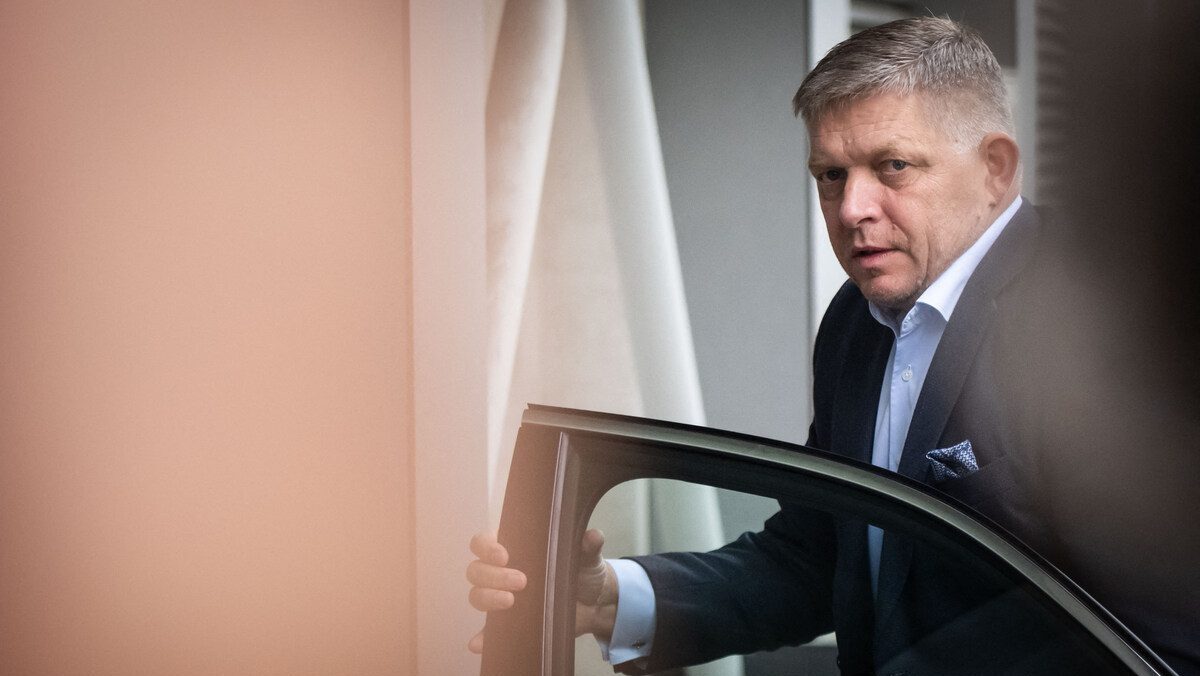
Chairman of Smer-Social Democracy party Robert Fico arrives for a press conference at the party’s headquarters after an early parliamentary election in Bratislava, Slovakia on October 1, 2023.
Photo: VLADIMIR SIMICEK / AFP
There is still no sign of a coalition in Slovakia, a week after former Prime Minister Robert Fico was tasked with forming a government. Fico, leader of the left-wing nationalist-sovereigntist party Smer—which governed Slovakia between 2006-2010 and 2012-20—held talks with leaders of the social democratic Hlas and the conservative-nationalist Slovak National Party (SNS) on Monday, October 9th, but neither of them was willing to share any details with the press after the meeting.
Fico won the election on a platform that criticised EU and American meddling in Slovakia’s domestic affairs, the handling of the deepening European migration crisis, Western sanctions against Russia, and the delivery of arms to Ukraine. Smer received the backing of 23% of voters, gaining 42 seats in the 150-seat national parliament, so numerically a coalition with Hlas (27 seats) and SNS (10 seats) would be enough to have a majority.
Many media outlets reported on Friday that an agreement had been reached between the parties, with Fico becoming prime minister, and Hlas leader Peter Pellegrini house speaker. Daily Hospodárske noviny, for example, stated that negotiations were already in the stages of how ministries would be divided among the parties, but Fico dispelled such rumours, saying on Monday that some of the reports had been false.
Being a previous coalition partner of Smer, the Slovak Nationalist Party SNS would have no problem partnering with Smer again. Party leader Andrej Danko stated he would even back a Fico-led government from the sidelines, in opposition. Pellegrini, however, a politician who would like Slovakia to be more aligned with EU and NATO policies, is being swayed by Michal Šimečka, leader of the liberal, pro-LGBT rights Progressive Slovakia (PS) to join him and even lead a four-party coalition as prime minister. PS came second in the election (32 seats), and would have a chance to try and form a government if Fico doesn’t succeed.
According to daily Denník N, however, the majority of Hlas—a party that split from Smer in 2020—would like to work together with Fico.
Another party that could be a kingmaker in negotiations is the Christian Democratic Movement (KDH). Although the party has refused to enter into a coalition with Smer, KDH has been accused by their former leader, Alojz Hlina, of striking a secret deal with Fico whereby they would snub Progressive Slovakia in return for stricter laws on abortion and more European funds allocated to Slovakian municipalities.
